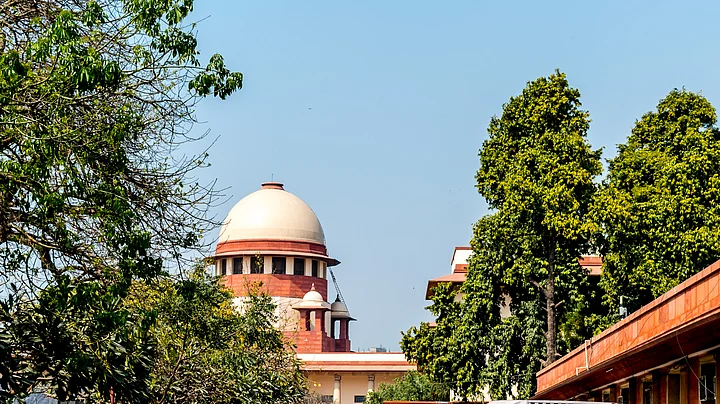(Click here to read K Nageshwar's article arguing in favour the of Supreme Court's verdict on the sub-classification of SCs and STs.)
A new debate has emerged after a Supreme Court verdict that states can now sub-classify Scheduled Castes (SC) and Scheduled Tribes (ST) to grant quotas within these groups, aiming to better support the more disadvantaged sub-groups. This overturned a previous judgment EV Chinnaiah vs State of Andhra Pradesh that had deemed such sub-classifications unconstitutional.
In this entire process, it is important to understand Ambedkar's position. He asked whether the "depressed classes", specifically the untouchables, were considered part of the Hindu community or not. As he wrote in The Real Issue: Aren’t the Untouchables a Separate Element?:
As I understand the matter, the fundamental issue is: Are the Untouchables a separate element in the national life of India or are they not? This is the real issue in the controversy and it is on this issue that the Congress and the Untouchables have taken opposite sides. The answer of the Untouchables is yes. They say, they are distinct and separate from the Hindus.
This was one of the major issues that Ambedkar wanted to highlight, ie, a separate electorate for depressed classes was connected to the identity and struggle that many Dalits and Bahujans faced (and continue to face).
Ambedkar gave detailed reasons why the depressed classes are different from Hindus. He argued that they are not part of the same society as they have been treated unequally by Hindus:
Whether the Untouchables are Hindus in the religious sense of the word depends upon whether one adopts as his tests the dogmas or the cults. If the tests of Hinduism are the dogmas of Caste and Untouchability then every Untouchable would repudiate Hinduism and the assertion that he is a Hindu.
Most importantly, Ambedkar clarified that his proposition for a separate electorate was for social change, and not merely for political and economic change. Linking this to the sub-classification debate, it is important to understand that the idea of reservations is to socially uplift the entire SC community via adequate representation.
In the sub-classification proposed by the judges, the Chief Justice reasons that “sub-classification is a facet of equality.” But the SC bench seems to have ignored the core reason why reservations were introduced in the first place — as a response to the historical oppression and centuries of discrimination faced by the Bahujan Samaj.
An aspect of the verdict that is being talked about is heterogeneity within the Scheduled Caste community. It is true that the community is not homogenous but the nature of discrimination, exploitation, and stigmatisation has been constant for the entire community. Irrespective of the heterogeneity, SCs with or without a poor economic background continue to experience caste-based discrimination, which is why reservations were introduced in the first place — to rectify the past and historical injustice against SCs.
The original theory of caste, based on social hierarchy and inequality, is the reason why the Scheduled Caste community has not seen a reduction in discrimination. Of course, some changes have happened but even Ambedkar accepted that a little change is bound to happen in society, as is its nature. The roots of caste-based discrimination continue to hold strong.
Additionally, sub-categorisation on an economic basis may perpetuate another level of hierarchy within the caste group.
Look at the Dalits and Mahadalits, the latter being an umbrella group introduced by Bihar Chief Minister Nitish Kumar in 2007 to identify the most backward of the Scheduled Castes. The logic is on similar lines as the SC's reasoning — to improve the condition of the most marginalised within the marginalised. My research, however, has shown that the conditions of the Musahar have hardly improved. The implementation of the Mahadalit schemes was not done as promised.
So, sub-categorisation may not even fully work to improve the economic conditions of the most backwards. But for Scheduled Castes who are both marginalised and extremely marginalised, what is much needed is to be provided access to social spaces (read: representation) with respect and dignity.
In this regard, their participation, for example, in the social and political institutions at the village and district level, will probably make a sizeable difference in their lives and their future generations.
The idea of reservations has become more and more political, and it might deteriorate in the future. Connecting the historical context and keeping in line with Ambedkar's teachings — for SCs, it is shared spaces and representation that reservations provide, something that they have been deprived of in the centuries preceding the proper implementation of affirmative action policies.
The sub-categorisation proposition opens up a new scope for negotiation not for the improvement of the social conditions of the SC community but for the advancement of political interests.
(Dinesh Chand is a researcher based in Telangana. This is an opinion piece. The views expressed above are the author’s own. The Quint neither endorses nor is responsible for them.)
